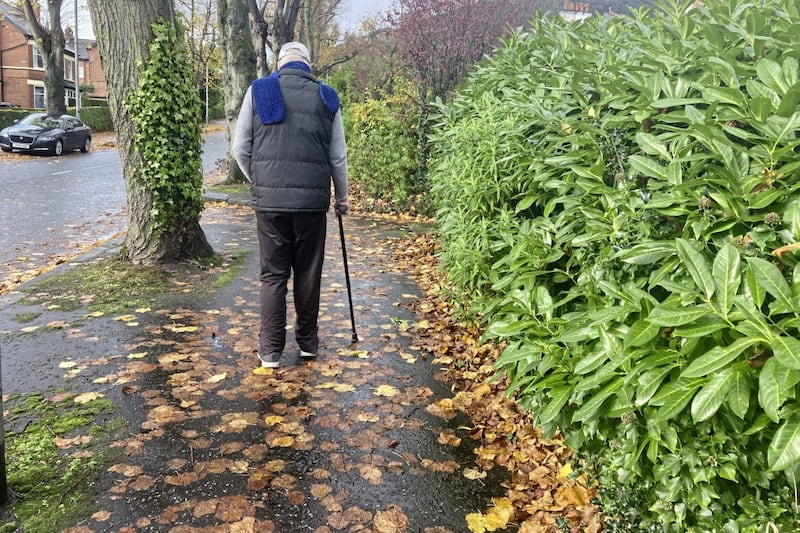SOME year ago I had the great pleasure of interviewing Sacha Duchess of Abercorn in her home in Baronscourt, a country house and estate near Newtownstewart, Co Tyrone.
Interview is not the appropriate word, though; we had a lively conversation as we sat in the impressive dining room over lunch. Of course we talked of the Omagh bombing and it soon became clear that, at the time and after, this modest woman had thrown herself into the community she loved so much and her support for the children who were so traumatised.
I was on the stage of the Gaiety Theatre in Dublin on Saturday August 15 1998. Midway through the matinee came a whisper that there’d been a bomb in Omagh. I was surrounded by English actors and they were frightened. Where is Omagh? Is it near Dublin? It was their first experience of The Troubles.
At the stage door a young woman was pleading down the payphone: "Where’s Mammy? Is she all right? Is she in town? Please, where is she?"
We gathered round, feeding the machine with money, keeping the line open until she heard the news she longed for, her mother was safe. It was chilling.
In Co Tyrone Sacha, Duchess of Abercorn was going about her business in her stately home. The news that blasted the whole community reached her within minutes. She went to the town where at 3.10pm a car bomb had exploded in Market Street, killing 29 people, injuring 220.
The duchess who could have settled for a life of privilege instead was in the midst of the mayhem and spent the rest of her life helping the children in the area reach their potential and above all to bring something positive out of the chaos.
“The voice of a child is pure, unencumbered by dogma, political correctness or red tape; children are entrusted to our care and they are full of potential so we have a duty to encourage this. They are like little seeds putting down their roots and nothing will stop them grow but we must help them to grow tall and strong in mind and body; it’s up to the older generation to support them and to feed all that is best in life.”
This elegant lady was involved in the community since coming to live in Baronscourt in the mid-60s. She was part of many public initiatives, including being a trained Samaritan and honorary secretary of the NI Centre for Trauma and Transformation. In 2006 she received the Ireland Fund Princess Grace of Monaco Humanitarian award.
As we talked she admitted to being a romantic as a little girl spending time roaming the countryside learning from nature making fear her friend by carrying a talisman, often a white stone “a little piece of magic and light to hold on to”.
A direct descendent of Alexander Pushkin
Russia’s greatest poet – “three grandfathers ago!” – would be proud of this woman who established the Pushkin Trust and the annual all-Ireland Pushkin Awards for children’s creative writing.
“It’s about finding the voice of the child,” she said. “Over the years, when adults were trying to maintain normality, the children of Omagh were having nightmares. In 1987 I felt I had to respond to the cry of a child traumatised by violence and civic strife, a cry echoing through a wasteland of terror and hopelessness – indeed children all over Northern Ireland were dreaming of being attacked and invaded. What was happening to their souls? The fear was so strong and I felt if we didn’t do something it would ripple on through the generations.”
Her way of doing ‘something’ was to invite children to put their feelings down on paper, visiting primary schools, talking to pupils and telling them about of her own life, her father’s stories and often relating Pushkin’s tales of Russia which came alive as she entranced the schoolchildren.
“Fairytales zing in all of us when we hear them,” she said, her passion infectious. “They ignite a spark, an enthusiasm and an ability to hear and to listen, so I asked them: Who are you? Tell me your feelings but tell me in your own words. A feeling is a valid thing and needs acknowledged so writers came to talk with them, artists and environmentalists. We soon discovered that as the children became involved in writing their stories and poems, they became curious in other subjects – history, Irish, even maths.”
Community choir
Formed only two months after the bombing, the choir goes from strength to strength. As their patron Sacha was convinced that the beauty of children’s voices would bring, as she put it, a glowing spark of light out of the darkness of the tragedy and kindle hope. This has proved to be the case thanks to a young man, tenor Daryl Simpson MBE.
“He became so fired with the desire to do something positive that he formed the Omagh Community Youth Choir and since then they’ve become our ambassadors. Many people have shown support and there are many people to thank. But we all see the rewards of our work in the choir itself and we know the positive influence this group of children has had all around the world.”
Since its formation, young people have sung all over the world, visiting the United States, performing in St Patrick’s Cathedral in Chicago and at Ground Zero New York, in the jazz capital New Orleans, the Royal Variety performance, even Glastonbury. They make music and friendships wherever they go and continue to do so.
“An example of a voice coming through the devastation which smashed the fabric of our society, and their message is simple, a cross-community group giving joy where there once was despair. What better way to remember those who lost their lives and the hundreds who have lived with the after effects of that awful Saturday afternoon?”
Sacha Duchess of Abercorn was special. My sympathies to her husband James and her family.









